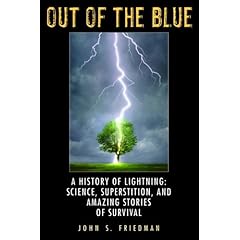The reading list
Upon my arrival at home, I decided to read two things:The first of which was The Ransom of Red Chief by O. Henry. I had forgotten how truly well that man wrote. I suppose he was an absolute hoot to be around in the jail. He reminds me of those incredibly intelligent boys who have the vocabulary and wit to outmatch any Editorial columnist, but with too little motivation to do anything about it. So he does what any brilliant and unmotivated person would do: he gets into trouble with the law. Cell bars have to power to force one to focus on tasks with greater gusto, it would seem, and we have a very entertaining anthology of wit and irony in the end.
The second book is a bit more weighty. Overcoming Sin and Temptation by John Owen. It comes upon the heels of (and perhaps in the midst of) my own battles with sin as its presence is greatly magnified in my life. However, I am quite confident that this is not for the purpose of despair as it is for the purpose of sanctification and rejoicing and growing in grace. I like what John Piper said in the Foreword:
As I look across the Christian landscape, I think it is fair to say concerning sin, "They have healed the wound of my people lightly" (Jer. 6:14; 8:11, ESV). I take this to refer to leaders who should be helping the church know and feel the seriousness of indwelling sin (Rom. 7:20), and how to fight it and kill it (Rom. 8:13). Instead the depth and complexity and ugliness and danger of sin in professing Christians is either minimized-- since we are already justified--or psychologized as a symptom of woundedness rather than corruption.
This is tragically light healing. I call it a tragedy because by making life easier for ourselves in minimizing the nature and seriousness of our sin, we become greater victims of it. We are in fact not healing ourselves. Those who say that they already feel bad enough without being told about the corruptions of indwelling sin misread the path to peace. When our people have not been taught well about the real nature of sin and how it works and how to put it to death, most of the miseries people report are not owing to the disease but its symptoms. They feel a general malaise and don't know why, their marriages are at the breaking point, they feel weak in their spiritual witness and devotion, their workplace is embattled, their church is tense with unrest, their fuse is short with the children, etc. They report these miseries as if they were the disease. And they want the symptoms removed.
We proceed to heal the wound of the people lightly. We look first and mainly for circumstantial causes for the misery--present or past. If we're good at it, we can find partial causes and give some relief. But the healing is light. We have not done the kind of soul surgery that is possible only when the soul doctor knows the kind of things Owen talks about in these books, and when the patient is willing to let the doctor's scalpel go deep.
What Owen offers is not quick relief, but long-term, deep growth in grace that can make strong, healthy trees where there was once a fragile sapling. I pray that thousands--especially teachers and pastors and other leaders--will choose the harder, long-term path of growth, not the easier, short-term path of circumstantial relief.









0 Comments:
Post a Comment
<< Home